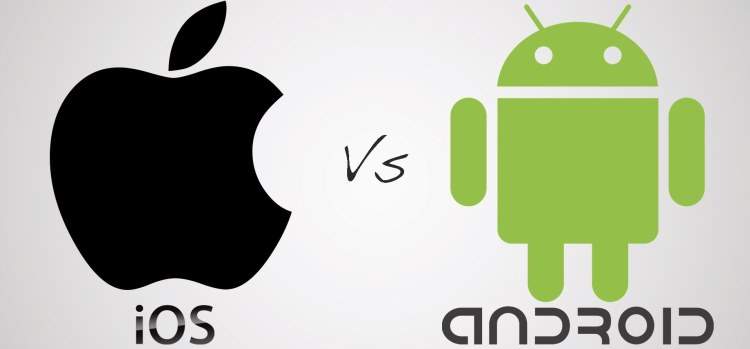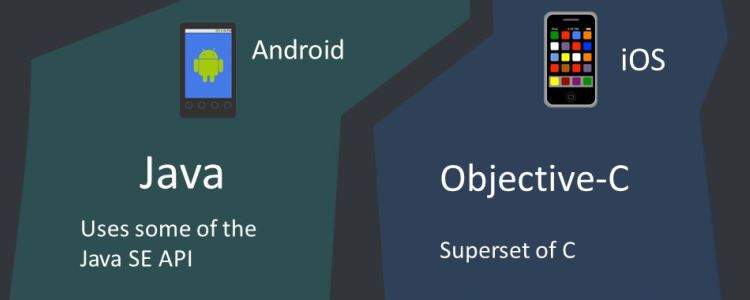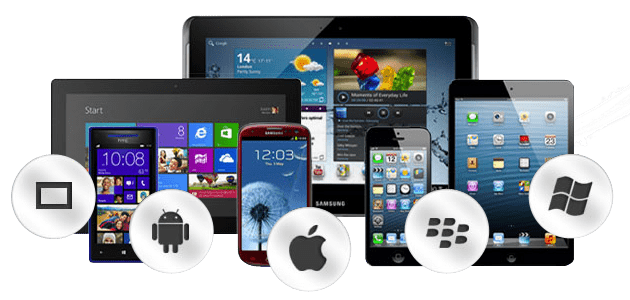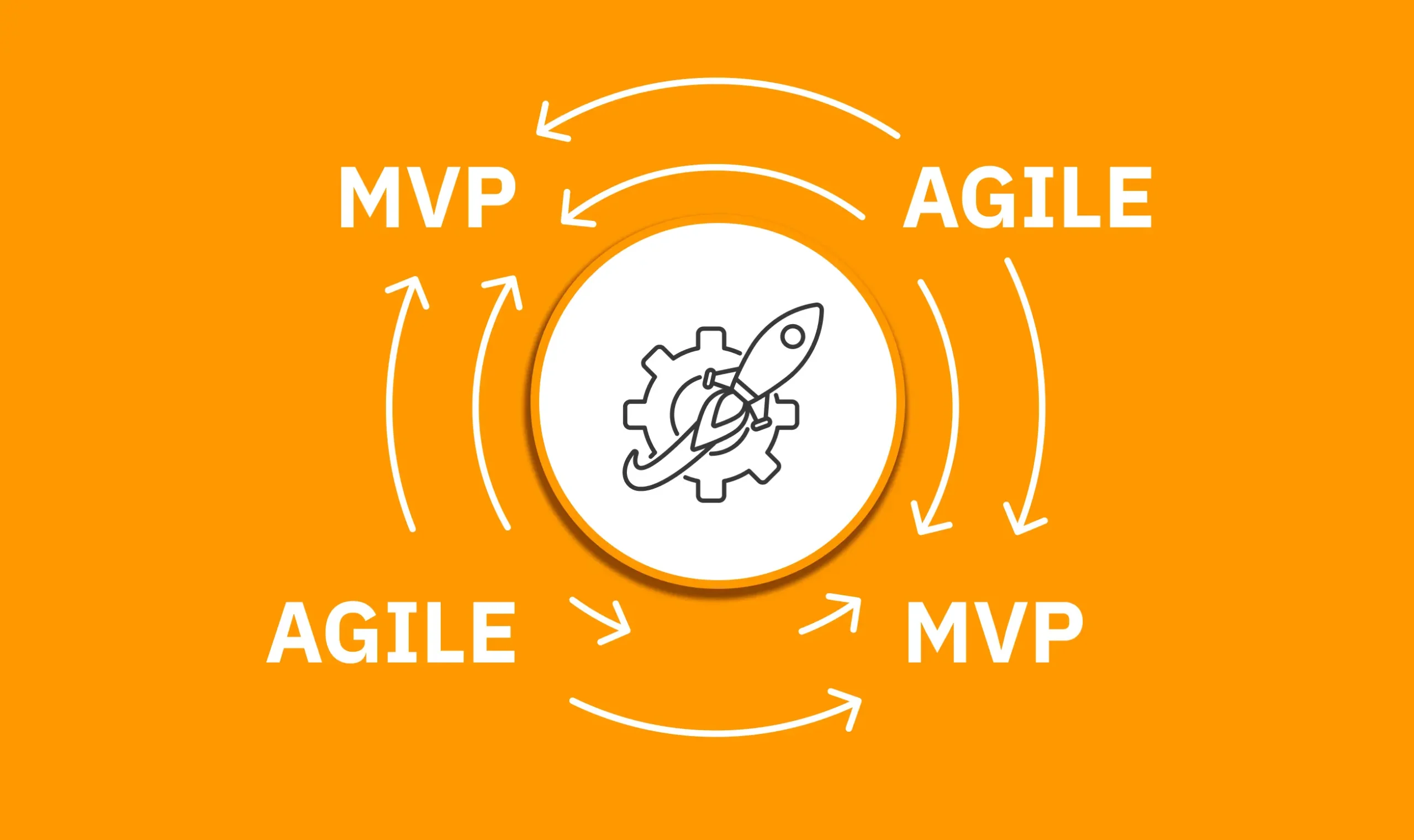Android vs iOS development: 10 key differences
When you need to create an app aligned with your business strategy, choosing between Android and iOS platforms is among the most important decisions to make. And the choice might not be so evident. Both platforms are being constantly improved with new features added on a regular basis. When properly used, both platforms offer serious advantages to business.
To build an app that will benefit both your business and customers, make the in-depth study of each platform you can choose. To begin with, you should set your priorities & goals. Ask yourself three main questions:
- What is the mission of your future app?
- What is most important for you – cost or time aspect?
- Who are your target users?
By clarifying this beforehand, you can avoid further issues or changes during the project. Now, when you have the answers, it’s time to compare the two platforms and find major differences between them.

iOS vs Android app development: the key differences
You probably want your app to be popular and bring you high profits. Which platform will help you to reach your goals? Let’s explore the main differentiating points between two options. We can divide them into two categories: business and technical points.
Business differences:
1 – Audience
As mentioned above, you must know your target audience in order to develop a well-performing app. Concerning the iOS and Android app development, your user personas should impact your choice. For example, the audience for iOS app development lives in North America or Western European countries; they prefer business, lifestyle and e-commerce applications over the other types of software. In fact, iOS app users spend 250% more on buying in-app then Android users do.
Meanwhile, the target audience for Android app development are mostly citizens of South America, Central and Eastern Europe. These users are more interested in entertainment & communication apps. A good price/quality ratio is what they care most about.
If your target is a global audience all over the world, Android app development might be the best option for you.
2 – Revenue
This is quite a tricky point to consider: while Android apps hold twice the global market share of iOS solutions, they are less profitable compared to their competitors. According to statistics, Apple App Store brought in almost 64% more revenue in a year, against 29% yearly increase for development of Android solutions. However, the creators of Android solutions can benefit from a high revenue too, since the number of Android users is constantly growing.
3 – Market share
If you want to attract more potential users, Android is a go-to mobile platform. To be precise, Android applications hold 84.8% of the global mobile market, and only 15% goes to the iOS mobile apps. The Android part of market share is expected to grow to 85.3% by the year 2020. So, for those who want to reach as many customers as possible, Android app development is the right strategy.
4 – Distribution specifics
The publication mechanism for the two platforms varies a lot. It takes from several days up to several weeks for the iOS app to go live. Apple verifies if an application meets their specific guidelines, with no inappropriate or abusive content inside. This approach allows to minimize risk of posting applications that have plenty of bugs inside.
On the other hand, posting an Android solution requires only several hours, since there is no strict verification process included. While this seems a more advantageous solution, it is also a more risky for end-users, since few verification methods are included.
So, again, think about your priorities: what do you value more – speed or safety? If safety is your number one concern, choose iOS app development instead of Android.
5 – Monetization specifics
Creators of iOS solutions usually charge for downloading their apps, while Android applications are normally free to download. Here are the popular ways to monetize your Android apps:
- ads placed inside applications
- in-app purchases
- e-commerce
As for the iPhone apps, there are three main ways to consider:
- In-app features & bonuses – besides reaching your monetization goals, you can also improve the end user experience by offering them more app features.
- The Premium version – it’s much better to sell a Premium app from within a free solution instead of offering a Premium version from the start. Better yet, study your users likes & needs, and offer them a customized solution in a paid form.
- Ad supported – without asking users to pay for the app installation, you show them ads promoting another service or version. These paid ads are another monetization method you might consider.
Of course, there are many other ways to monetize your application – through affiliate sales, sponsorships or subscriptions. The latter will be particularly effective for news & content driven apps. So, choose a monetization method that fits the nature & purpose of your app. That’s your tried-and-true way to success.

Technical differences
Understanding the technical aspects is important for two main reasons – it allows you to predict possible issues & choose the best option for you. So, here are the main distinctive points between custom Android app development & iPhone app creation:
1 – Development complexity
Long story short, Android app development is far more difficult than creation of iOS apps. Think of large number of devices, each with its own screen size and aspect ratio. When creating an app, programmers must make it adjustable to all of them. Moreover, don’t forget a large number of operating systems. Meanwhile, iOS applications run on the limited number of devices (iPhone, iPod or iPad) and on a few operating systems. Thus, app development is much easier for this platform.
2 – Development time
The costs of development largely depend on the time needed to build an app. In general, app development consists of design, development and testing stages. While the first two stages take approximately the same amount of time, the testing of Android apps is slower than testing of iOS applications. Furthermore, all iPhone applications go through a set of approvals before final distribution. Consider this when setting the date of your app release.
3 – Design differences
The differences between iOS and Android solutions on this level can be hardly unnoticed. Apple focuses on clean, powerful and soft design, providing users with superior user experience. On the other hand, Android programmers value more the hardware part instead of focusing on aesthetics. Another key difference is the Return button, which is always included in Android applications but is absent in the iOS solutions. Thus, iOS programmers must include it in their app. However, both types of app development follow minimalistic & concise design concepts. There are no huge icons or lines, so modern user enjoys an app with visually appealing interface.
4 – Programming language
There is an important point to consider before starting any mobile app development project. To learn iPhone mobile app development, one must own an original device from Apple. Unfortunately, this fact creates serious limits for many app developers. Speaking about coding languages, Android app development requires proficiency with Java, while software development for iOS platforms requires Objective-C or Swift language. Either way, you should hire experienced Android or iPhone app programmers to create powerful and well-functioning app solutions.
5 – Development cost
That’s a crucial aspect which influences directly any business. Android app development might be expensive due to a large number of devices and operating systems on which Android solutions can operate.
Meanwhile, with every new iPhone or iOS device you have to buy another application, since Xcode fits solely Mac.
Generally speaking, the costs of your Android app development project depend on your payment model and time spent on it. There are three main pricing methods:
- time & materials
- fixed price
- milestones
Choose the model which fits best your resources and plans.

Benefits of Android vs iPhone app development
To resume all of the above, here’s the list of main advantages of both mobile app development platforms:
| Android |
iOS |
| reduced development costs | strong level of security |
| ease of development | high quality customer experience |
| wide range of customization options | high ROI |
| many sales channels | proved value |
| availability (ready to download fast) | reach to the right audience |
Building an app is a great way to promote your services, make your brand easy to recognize and gain customer loyalty.

Cross-platform app development
With all the discussions going around iOS & Android app development, you might wonder: “What if I build a cross-platform solution and kill two birds with one stone?” Well, this approach will be beneficial if you want to shorten & simplify your development process. It also allows reaching wider audiences without spending too much on your software development.
Cross-platform development allows to create applications running on any tablet or smartphone. However, it can result in poor user experience and performance issues.
How to hire the best iOS & Android developers
If you need a skilled iPhone or Android app developer, you should be aware of specific skills & competencies he should have.
Android
Besides Java programming language, here is the list of mandatory skills for any decent candidate:
- understanding of Android open source ecosystem
- code versioning
- expertise with Android SDK
- 3rd party libraries and APIs understanding
- experience in software development
- databases, XML and OOPS concepts
- experience using SQL server
When in need to hire iPhone app programmers, here are basic skills & experience that they should have:
- profound knowledge of iOS frameworks (Core Animation, Core Data etc.)
- experience with iOS app development
- proficiency with Objective-C or/and Swift
- knowledge of Apple’s design/UI guidelines
- expertise with code versioning & its tools (such as Mercurial, Git, SVN)
- experience with APIs and 3rd party libraries
Whenever you need one or several of them, set your requirements and carefully evaluate the candidates before hiring. CyberCraft is happy to help by screening and choosing the candidates to your requirements. Relying on our years experience in IT staffing, you can get your perfect team in a secure & fast way.
Remember, there’s no right or wrong solution, as each method of mobile app development has its own benefits and pitfalls. Identify your core priorities and choose the platform that can bring you those – that’s the receipt to success.




